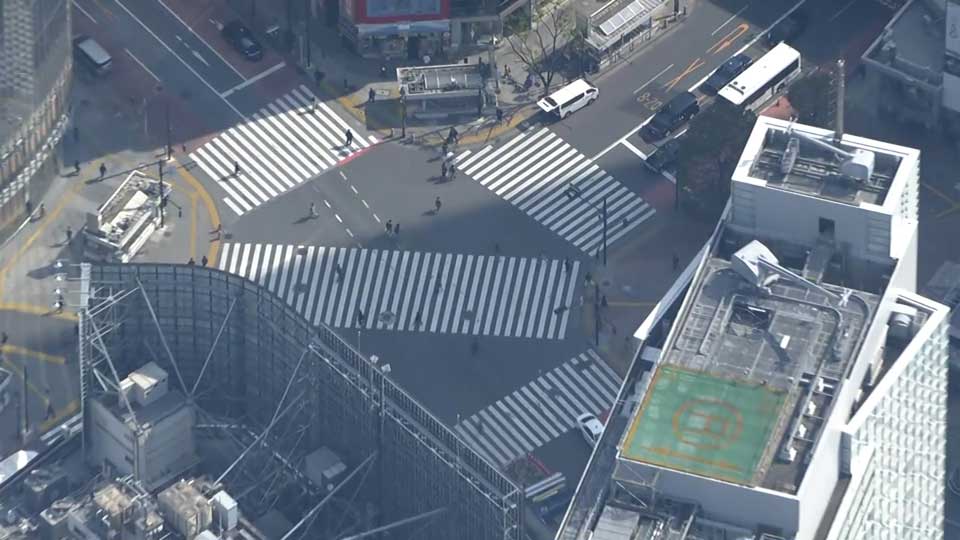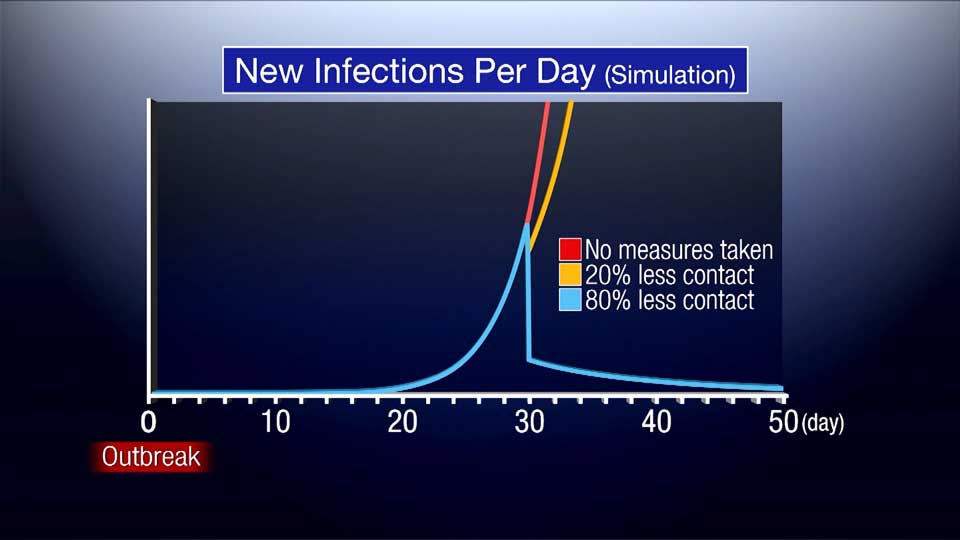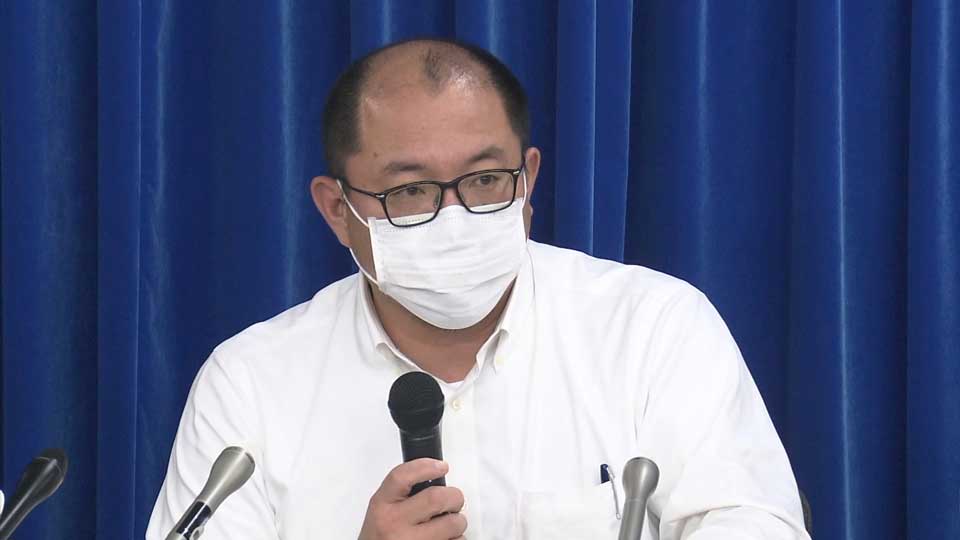The declaration changed the scene in Tokyo
On the streets of Shibuya you can see the difference. At the iconic pedestrian crossing, which usually handles thousands of people every few minutes, the foot traffic has thinned out dramatically.

But early estimates of movement under the state of emergency suggest the drop is nowhere near what authorities and experts are calling for. A survey by Yahoo on Wednesday suggested that the number of people visiting Chiyoda Ward, where many companies and government offices are located, was down by around 40% from a year ago. For Tokyo’s 23 wards as a whole, the estimated drop was just 26%.
The key number
According to government task force on cluster infections, reducing social interactions by 80% is crucial.
Professor Nishiura Hiroshi of Hokkaido University, who is a member of the task force, says if contact is reduced by only 20%, the number of infections is going to increase. If people reduce contact by 60-70%, it will take two to three months for the effects to be felt.

A difficult target
Those people who were out on the streets of Shibuya on Wednesday said it’s proving difficult to reduce contact to the level the authorities are asking for. One man said he has to meet many people for work and trains are still quite crowded.
One woman said she thinks she has achieved about a 50 to 60% reduction because she no longer goes out drinking with her friends, but it's difficult to go any further. She needs to leave her home to visit a doctor.
Professor Nishiura says it will take time for people to adjust to the new reality. He says people should aim to reduce contact by at least 40% by the end of the week, by 60% next week, and 80% the following week. And he says it’s not something that can be achieved by individual effort alone. He says business operators need to play a role and act responsibly.

Much softer request than overseas
In New York, people face a fine of $1,000 for breaking social distancing protocol. In France, first-time offenders face $150 tickets. Repeat offenders can be fined up to $1,600.
But Japanese Prime Minister Abe Shinzo says his administration’s measures won’t be as stringent. In fact, there is no legal basis to impose fines, so success or failure depends on people’s willingness to comply.
The state of emergency is still in its early days and the next few weeks will determine whether it’s an effective strategy.

